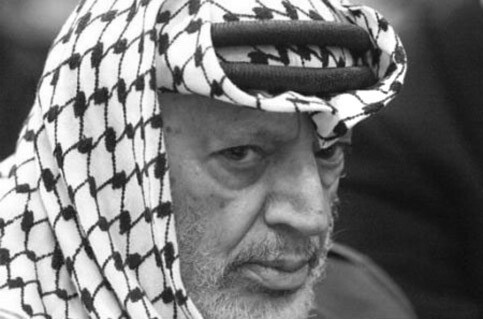Al Jazeera 9 November 2004

Palestinian Authority officials and opposition leaders have vowed to safeguard national unity in the wake of leader Yasir Arafat’s death. Seeking to cope with the absence of the man who was at the helm of the Palestinian national struggle for nearly 40 years, leaders of the mainstream Fatah movement, which Arafat founded and led until his death, undertook not to allow his passing to impact the movement’s ability to keep up the struggle against Israeli occupation.
“I know the Israelis are trying to disseminate a lot of propaganda in this regard for the purpose of undermining our people’s morale. However, I assure you that the transition of power will be smooth and that our political institutions will perform their function properly,” said Diyab al-Louh, a prominent Fatah leader in the Gaza Strip.
He told Aljazeera.net shortly after Arafat’s death was announced from Paris that Palestinians would mourn Arafat and miss him dearly, but would not be paralysed by his death. “Arafat’s death is undoubtedly shocking news for all of us, but our people are always able to rise up again and keep up the struggle which Arafat embodied all his life,” he said.
Asked whether he harboured any worries about the behaviour of the Palestinian opposition, especially Hamas, after Arafat’s death, al-Louh said “not at all”. “I assure you that the opposition is more disciplined and more committed to national unity than many people thought.”
Uncertainty
Other Palestinians intellectuals are not so optimistic about the post-Arafat era. Awni al-Khatib, professor of chemistry at the University of Hebron in the southern West Bank, believes that the passing of Arafat will turn out to be “an earth-shaking event” for the Palestinian Authority and especially the Fatah movement.
“Arafat always represented the safety valve that prevented Fatah from disintegrating into warring factions. Now that he is no longer around the old contradictions within Fatah will resurface and we might very well witness some serious power struggles especially between the heads of the security agencies.” Al-Khatib told Aljazeera.net the only guarantee against “internal troubles” was the organisation of genuine elections as soon as possible.
However, he warned that Israel and the US might seek to prevent the organisation of elections for fear that the Palestinian people would elect a leader who is steadfast on such Palestinian causes as Jerusalem, the refugees’ right of return and Jewish settlements.
Al-Khatib recognised that Arafat’s death creates a “conspicuous psychological vacuum” which may remain for some time to come. However, he added that the Palestinian people would soon overcome this situation “because life will have to go on … even without Arafat. The Prophet Muhammad died … and Islam didn’t disappear … the opposite is true.”
Hardships unify
This view is shared by Talal Sidr, a former PA minister of youths and sport and an adviser for Arafat on religious affairs. He told Aljazeera.net that the Palestinian people and its various factions would not fulfil Israel’s “ill wishes” for an unstable Palestinian arena after Arafat.
“The Palestinian question began before Arafat and will continue after his death … Arafat’s death is received as an act of God and we accept Allah’s will,” he said. Sidr dismissed Israeli “disinformation” that the Palestinian people would slip into turmoil and instability after Arafat’s death. “We are not herds of savages, we are a civilised and resilient people and our long struggle testifies to this fact … hardships like this would steel us and unify our ranks.”
Smooth transition
Hasan Khraishi, a prominent member of the Palestinian Legislative council, predicted that power in the Palestinian Authority would be shared equally by the PLO Executive Committee, the Legislative Council and the PA prime minister.
Recognising the “centrality” of Arafat in the Palestinian struggle and the PA itself, Khraishi said the Palestinians were saddened by Arafat’s passing. “Losing Arafat is not an easy matter, he was always like a father figure, and his death is greatly felt by all of us. “But his death is not the end of the world for us and we will overcome it and put our house in order.”
Khalid Amayreh is a journalist based in the occupied West Bank. This article was originally published by aljazeera.net.
Related Links





